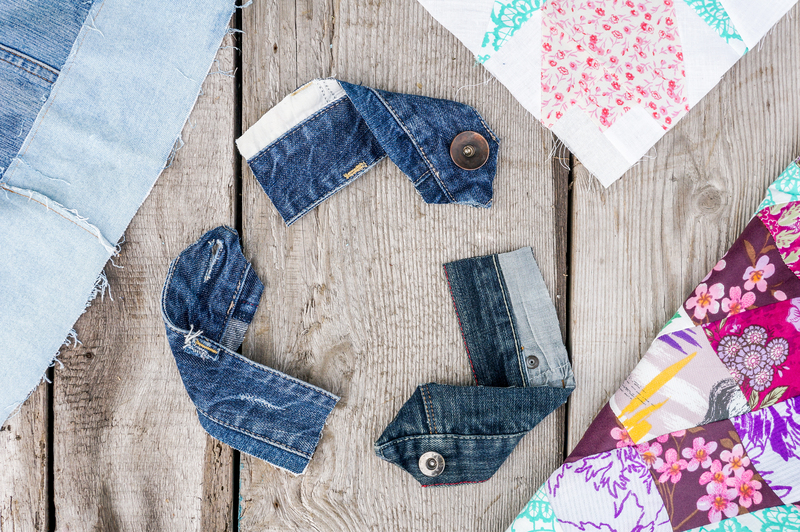Convenient Recycling for Used Plant Pots: A Comprehensive Guide
For passionate gardeners, nursery owners, or even hobbyists, recycling used plant pots is an essential yet often overlooked component of sustainable garden practices. The sheer volume of plastic and other materials that containers generate each year can significantly contribute to environmental waste. However, embracing convenient recycling solutions for used plant pots not only benefits the planet but also promotes a greener gardening culture. If you're wondering how to handle your growing collection of empty nursery pots, flower containers, trays, and cell packs, this in-depth article will explain the most effective, practical, and eco-friendly options available today.
Why Recycle Used Plant Pots?
Recycling flower pots and garden containers is crucial for several reasons:
- Environmental Protection: Most pots are made from plastics like polypropylene or polystyrene, which take centuries to decompose. Recycling prevents them from ending up in landfills or polluting natural habitats.
- Resource Conservation: Recycling plant pots saves energy and raw materials, helping to reduce the need for new plastics production.
- Waste Reduction: By reusing or recycling old containers, gardeners cut down on the total amount of waste generated from horticultural activities.
- Community Contribution: Many local recycling programs rely on consumer cooperation to function efficiently and sustainably.
Statistics on Plant Pot Waste
According to studies, over 350 million plastic plant pots are discarded annually in the United States alone. The United Kingdom reports tens of thousands of tonnes of horticultural plastic waste each year.

Types of Plant Pots and Their Recyclability
Understanding the materials in your containers is the first step towards convenient pot recycling. The table below outlines common materials and their recyclability:
- Plastic Pots: Typically made from polypropylene (PP5) or polystyrene (PS6). Look for recycling symbols on the pot bottom.
- Terracotta and Clay Pots: While technically recyclable, these are best reused or repurposed since not all curbside programs accept them.
- Biodegradable Pots: Made from coconut coir, peat, cow manure, or compressed paper. These can usually be composted rather than recycled.
- Metal and Ceramic Pots: Can occasionally be accepted in recycling centers but more often are suitable for reuse, donation, or creative upcycling.
How to Identify Recyclable Pots
- Check the recycling code number (often on pot base)
- Look for symbols: PP#5 (Polypropylene), HDPE#2 (High-Density Polyethylene) are commonly recycled
- Colored pots, especially black, may be less likely accepted due to sorting technology limitations
If in doubt, contact your local recycler for specific guidelines.
Convenient Methods for Recycling Used Plant Pots
- Curbside Recycling Programs
- Garden Centers and Retailer Take-Back Schemes
- Specialized Plastic Recycling Depots
- Re-use and Upcycling Strategies
- Community Pot Swaps and Nonprofit Collection Drives
Curbside Collection for Plant Pots
Some municipalities allow plant pot recycling via the curbside bin, provided the pots are clean, free of soil, and marked with accepted recycling codes. Always:
- Rinse pots thoroughly to remove dirt and contaminants
- Stack similar containers to save space
- Remove any attached labels, metal wires, or stickers
Check with your local waste management authority for detailed guidelines, as policies differ from city to city.
Take-Back Programs at Garden Centers
An increasingly popular convenient recycling option for used plant containers is the take-back initiative at leading garden retailers. National chains such as Lowe's, The Home Depot, and independent nurseries often host drop-off bins specifically for empty pots and trays.
- Contact participating stores ahead of your visit to confirm accepted materials
- Most programs only allow plastics 2 (HDPE) and 5 (PP)
- Don't mix other materials (soil, broken ceramics) with your plastic pots
Take-back bins are usually near store entrances, making the process both simple and accessible.
Utilizing Specialized Depots
Some regions operate dedicated horticultural plastic drop-off sites or recycling depots. These facilities are equipped to handle quantities that exceed household levels, such as from professional landscapers or community gardens. Search your municipality's website for garden pot recycling depots or inquire at local environmental organizations.
Creative Re-use and Upcycling of Used Plant Pots
While pot recycling solutions are vital, many gardeners choose to extend the life of containers through repurposing and re-use before opting for recycling. Here are some creative and practical ideas:
- Seed Starting and Propagation: Small nursery pots are ideal for future plant propagation or growing annuals from seed.
- Organizing Toolbox or Craft Supplies: Stackable pots can organize nails, screws, or art materials in the garage or studio.
- Landscape Borders and Edging: Bury pots upside down to create garden bed boundaries.
- Donation: Offer gently used pots to community gardens, schools, or local plant swaps. Many educational institutions are happy to accept these for classroom projects.
- DIY Projects: Decorate and transform flower containers into colorful decor, storage holders, or even quirky bird feeders.
Benefits of Reusing Plant Pots
- Reduces the need for new purchases
- Extends product lifecycle, minimizing waste
- Encourages creative thinking and resourcefulness
Best Practices for Preparing Used Pots for Recycling
Regardless of your chosen recycling route, proper preparation significantly increases the chances that your pots will be effectively recycled. Follow these steps:
- Clean Thoroughly: Rinse out soil, plant residue, and fertilizer salts. A mild soap solution may be used for stubborn grime.
- Remove Stickers and Labels: Any non-plastic additions can interfere with the recycling process. Peel them off and discard separately.
- Sort by Material and Size: Stack similar materials together. Separate different types of plastics if possible.
- Check for Cracks or Damage: Severely damaged pots may not be eligible for recycling. Consider upcycling or art projects instead.
Caring for your used containers not only helps recyclers but also ensures greater environmental gains.
The Future of Plant Pot Recycling: Trends and Innovations
The world of convenient recycling for used plant pots is rapidly evolving as businesses and environmentalists address plastic waste concerns. Some notable innovations and strategies on the horizon include:
- Biodegradable and Compostable Pots: Designed to break down naturally, these alternatives minimize landfill buildup and are easier to dispose of responsibly.
- Closed-loop Recycling Systems: Some nurseries collect old pots, recycle them on-site, and use the material for new plant containers, creating a sustainable circular economy.
- Smart Recycling Technology: Advances in sorting, particularly for black plastics, make it more likely these will be accepted by mainstream recyclers within a few years.
- Retailer Collaboration: Industry-wide initiatives such as the 'Plant Pot Recycling Scheme' in the UK and 'Nursery Pot Take Back' in the US are gaining momentum, improving accessibility for home gardeners and professionals alike.
Government Policies and Public Education
Governments at various levels are introducing policies and awareness campaigns to foster responsible disposal of horticultural plastics. Grant programs and incentives are encouraging retailers and nurseries to install accessible collection bins and educate customers on the environmental benefits of recycling old plant pots.
Tips for Sustainable Gardening Beyond Container Recycling
While convenient recycling of used plant pots is critical, a holistic sustainable gardening strategy includes several complementary practices:
- Choose Multi-Use or Biodegradable Containers: Whenever possible, select pots designed for long life or those that naturally decompose.
- Buy in Bulk: Reduce the number of single-use seedling trays by consolidating purchases or starting more plants at once.
- Support Eco-Friendly Nurseries: Patronize retailers that use minimal packaging, promote recycled and recyclable pots, and participate in pot take-back initiatives.
- Advocate and Educate: Share your recycling knowledge and encourage neighbors, schools, and gardening clubs to implement better waste management strategies.

FAQs: Convenient Plant Pot Recycling
Is it necessary to clean plant pots before recycling?
Absolutely! Soil, fertilizer residues, or plant material can contaminate recycling batches. A simple rinse and removal of labels will help ensure successful processing.
Can colored pots, especially black ones, be recycled?
In many areas, black plastic pots are not detected by traditional recycling machines and are often landfilled. However, new technology is improving prospects. Inquire locally and consider reusing or donating these containers until programs expand.
What should I do with broken or damaged pots?
Severely broken pots may not be accepted in recycling streams. If safe, use pieces as drainage crocks in new plantings, for garden art, or donate to schools for craft projects.
Where can I find a list of local plant pot recycling programs?
Start with your municipal website, then check with nearby garden centers, Home Depot, Lowe's, or search for 'plant pot recycling near me' online. Environmental organizations often compile up-to-date lists.
Conclusion: Making Recycling Plant Pots Easy and Effective
Adopting convenient solutions for recycling used plant pots is a vital component of sustainable gardening and environmental stewardship. With more options than ever, from curbside bins to in-store drop-off programs, it is simpler than ever to keep plastic containers out of landfill and contribute to a circular economy.
By cleaning, sorting, donating, or creatively reusing pots, you help foster a gardening community that values and protects the earth. And as technology and awareness grow, the future of plant pot recycling looks brighter with each passing year.
Let's all do our part--recycle, reuse, and respect our natural world, one plant pot at a time!